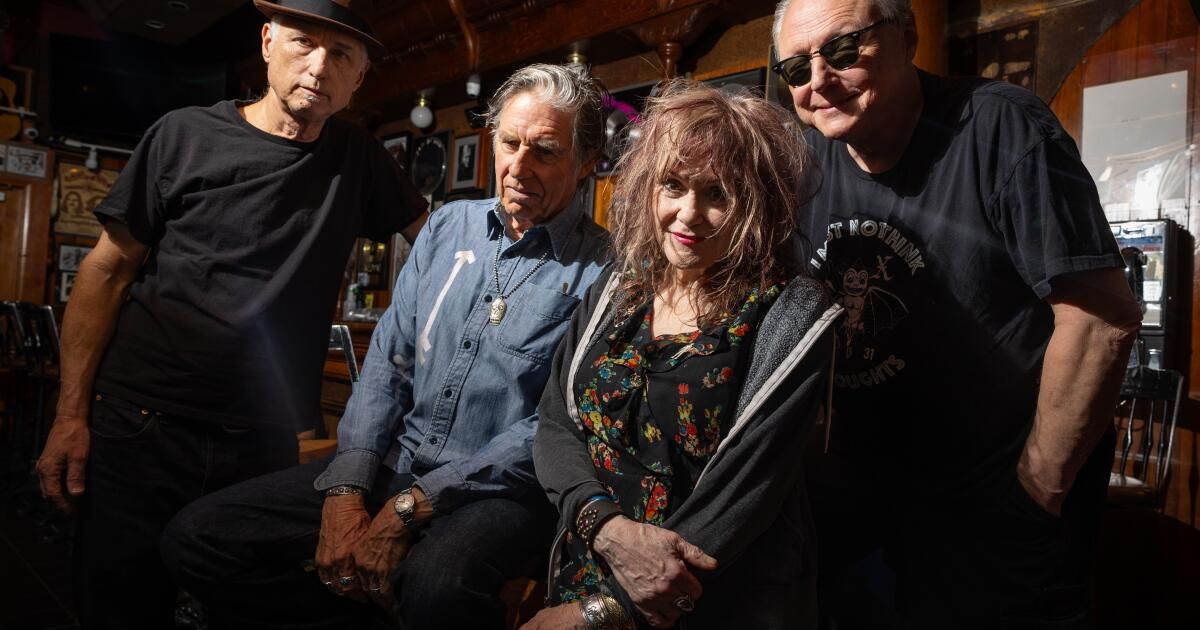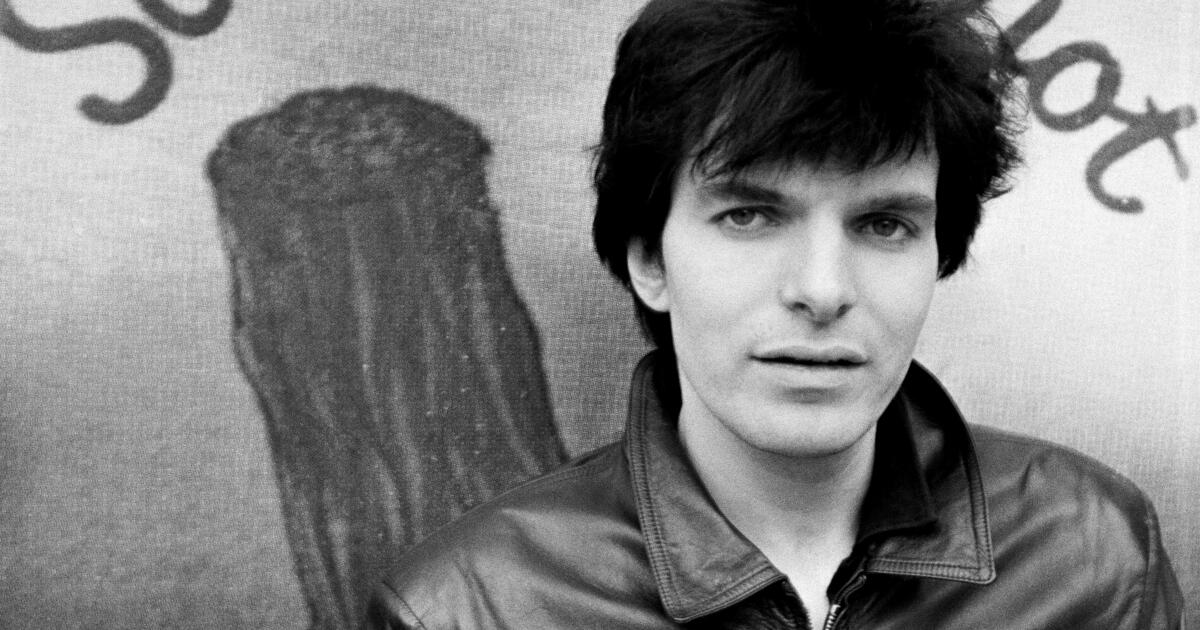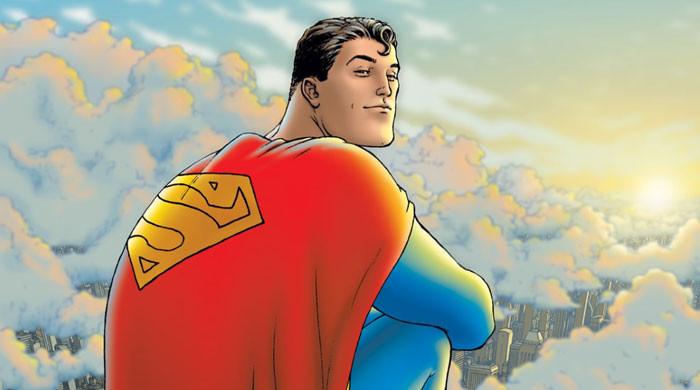In front of a handful of Alex’s Bar employees rushing to prepare for a sold-out club show on a recent hot summer night in Long Beach, the members of X are busy warming up at soundcheck for the first of two local shows they played last month to kick off the album cycle the iconic L.A. punk band says will be its last. John Doe holds down his bass and handles vocal duties, while his longtime teammate, band sparkplug Exene Cervenka, is also mic-testing her vocals. Billy Zoom alternates between his guitar and saxophone while DJ Bonebrake keeps the beat.
Unlike other local releases, this show in support of their latest album, “Smoke & Fiction,” has an extra touch of urgency. The lengthy tour stretches into 2025, with no real end in sight, but tonight, it’s business as usual. New songs, like the title track and “Flipside,” pack a punch, while band classics “Water & Wine” and “Come Back to Me” maintain their urgency.
Once Zoom and Bonebrake leave the stage, Doe and Cervenka sound-check a cover of the Blasters’ “4th of July.” As they trade vocals, the two lock eyes and their onstage connection is stronger than ever.
“We know where each other is going, even if it’s a new place or a new phrase,” Doe says backstage as she sips a ginger beer. “So we share a brain in that sense. In many ways, I think Exene is one of the greatest writers of all time.”
“We’re just a band,” Cervenka says a few days later at the band’s rehearsal space in Orange. “People are very attached to bands. They’re just people playing music. It’s not a big deal.”
Depending on which member you ask, there will be a different answer as to how and when the decision was made for X to hang up their gear. But, details aside, it was a mutual decision that all members agreed was the right time to call it a day. “It really is our last record,” insists Bonebrake backstage at Alex’s Bar. “Sometimes you just have to say, ‘Well, this is it. ’ But we had to do one last hurrah.”
Exene Cervenka and DJ Bonebrake perform with X at the Troubadour.
(Jason Armond / Los Angeles Times)
Unlike 2020’s “Alphabetland,” the band’s first album in 27 years and first over Zoom since 1985 (recorded the year before and completed just before the pandemic), “Smoke & Fiction” came together quickly. Doe began writing in November 2022, and as the songs developed, X tested them out on tour last year. Cervenka says “Alphabetland” and “Smoke & Fiction” are thematically complementary albums.
By the time they went to Sunset Sound to record in January, they already knew what they wanted to do. There, along with producer Rob Schnapf (in whose studio they completed the album), X decided to keep things simple and punk rock, spending just three days in the studio to record the basic tracks and paying for the sessions themselves.
“It's like a military campaign writing the songs, shaping them and figuring out how you want it all to hold together,” Doe says.
“We’ve been talking about this for a couple of years,” Bonebrake says. “We were prepared when we started and it was easy from there.”
“We probably won’t make another record because we probably don’t have it in us,” Cervenka recalls thinking at the time. “So let’s make this one and make it great.”

The album’s emotional centerpiece is “Big Black X.” Throughout the song, with Zoom’s riffs leading the way, Cervenka references moments from X’s career. The song’s title is a reference to the image of the band’s name lit up on a white marquee. Additionally, lyrics like “Cherokee alley/something about a basement” reference Masque, which no longer exists. The song isn’t sentimental, but rather a remembrance of what happened.
“If I could sum up our career in one song, I’d say this is it,” Doe says of “Big Black X.”
“It's a fun song,” Cervenka adds. He compares it to “In This House That I Call Home” and “The Unheard Music.” “It was just a lot of freedom.” [in the band’s early days] and a wild nature that children may not have as much of now.”
The band says that despite numerous references to bygone eras of punk, the spirit of the album makes an effort to go beyond simple nostalgia.
“It became clear to me that lyrically this is a good way to end the album,” says Doe. “But we might record a song or two here and there, but you never know.”
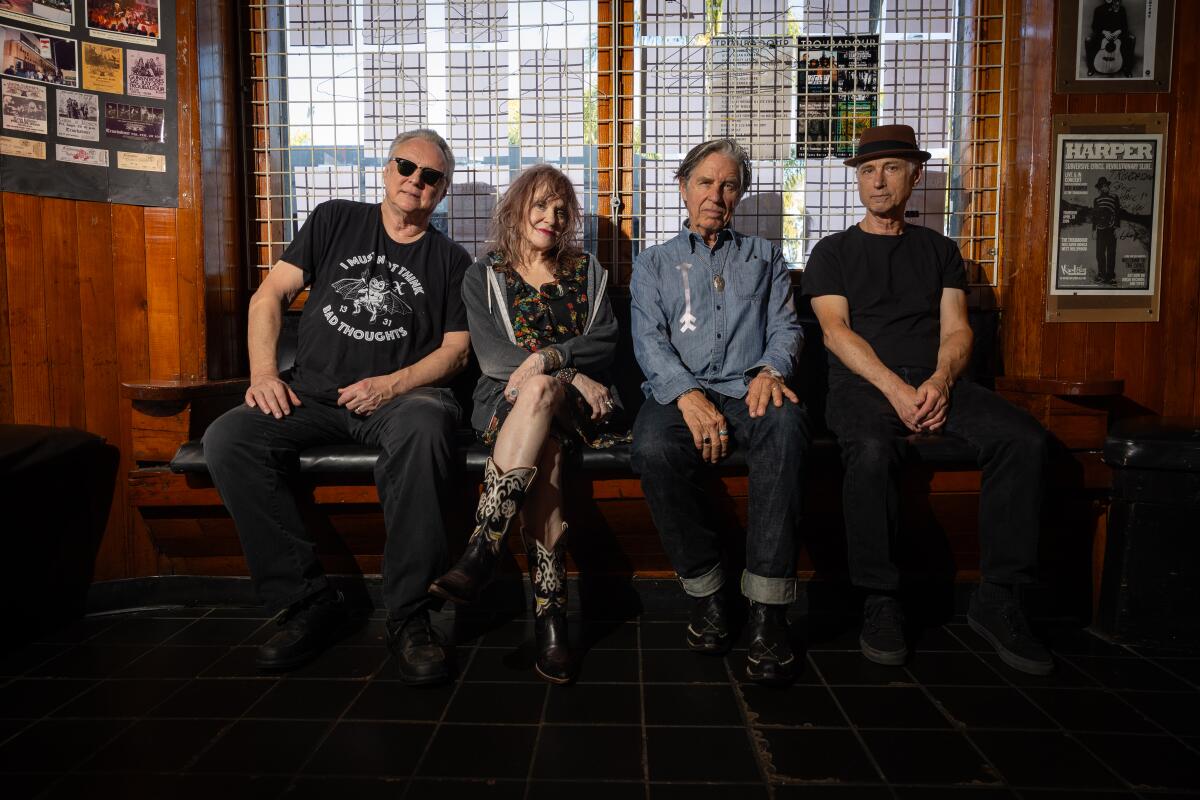
Billy Zoom, from left, Exene Cervenka, John Doe and DJ Bonebrake. The band has maintained its original lineup for most of their years together.
(Jason Armond / Los Angeles Times)
“When we moved here in 1976, there were still a lot of remnants of the real Hollywood,” Cervenka says. “I like to remember it and give it back to the world. It’s not nostalgia, it’s appreciation.”
Cervenka says the themes of love and lost love, and the exploration of place and time, are present throughout the album.
The best thing that can be said about “Smoke & Fiction,” which clocks in at just under 30 minutes, is that it has all the hallmarks of a late-X-era album: heavy punk mixed with roots-rock elements, contemplative lyrics and roaring riffs. “It’s not in our nature to reinvent things,” Doe says. “We have a clear idea of who we are.”
The members of X say that despite a busy touring schedule that will take them through 2025, they plan to retire from touring, though Doe says that's not stopping them from playing one-off shows at larger theaters and a select number of dates. “If you want to see X in a sweaty club, do it now,” he says.
A few days later, at the band’s Orange County rehearsal space, Cervenka and Zoom say they’re happy with how the past few years have gone for the band. Zoom cites his age — at 76, he’s the oldest member of the band — as a reason for slowing down, while Cervenka says the van rides between shows have become a physical challenge. Since 1998, X has played more than 1,800 shows and more than 4,000 over the course of his career. By comparison, the Ramones played just over 2,600.
“Every show is hard work,” Zoom says. “And there’s a lot of anxiety to overcome. It’s hard to stand up in front of people and perform. I enjoy it and it’s good work, but when people ask me what my favorite song to play live is, I always say the last one.”
“You never know when the end will come,” Cevernka says. “The thing is this: making two records in the last six years is pretty amazing. We did it and I’m happy about it. But what is a tour? We’ve been playing for the last 45 years and we’ll play until people stop wanting to see us. Or until one of us says, ‘You know what? This is too hard. I don’t want to do it anymore. ’ And I don’t know if that’s next week or next year. It’s a good wake-up call for people because we’re not going to do this forever.”
Interestingly, when X stops working, a piece of Los Angeles rock history will disappear with them. Formed in 1977 by Doe (who would bring Cervenka) and Zoom, X became the standard-bearers of the punk scene. They conquered now-defunct clubs like Starwood, Madame Wong's and Hong Kong Café, and their 1980 debut, “Los Angeles,” is considered a punk classic.
X is the last remaining link to the nascent days of 1960s Los Angeles rock, with its direct connection to The Doors’ Ray Manzarek, who produced their first four albums. His production influence ensured that X remained true to themselves and didn’t fall into recording traps that would make their sound specific to a certain era.
Though they might not admit it, X's time at the top of the L.A. rock food chain directly influenced many bands that followed. In particular, Cervenka's poetic lyrics, her and Doe's vocal harmonies, and their willingness to fuse elements of rockabilly into their sound brought American roots music back to prominence, along with the Blasters and, later, Social Distortion.
“I think we inspire people by example, by being ourselves or by being somewhat eclectic,” says Doe. “Billy, me, DJ and Exene have a very rich vocabulary of American music.”
Zoom grew up on a steady diet of roots music and added that element to the band's sound seamlessly (he's played with rock legends like Gene Vincent), so much so that Doe says the intro to “Sweet Til the Bitter End” has elements of Bo Diddley's guitar style. The ninth album may be its last, but the band is giving the people what they want.
“My business is making people happy. Giving people a gift of the X album is all I want to do,” Cervenka says. “If they’re happy with it, I’m happy with it.”
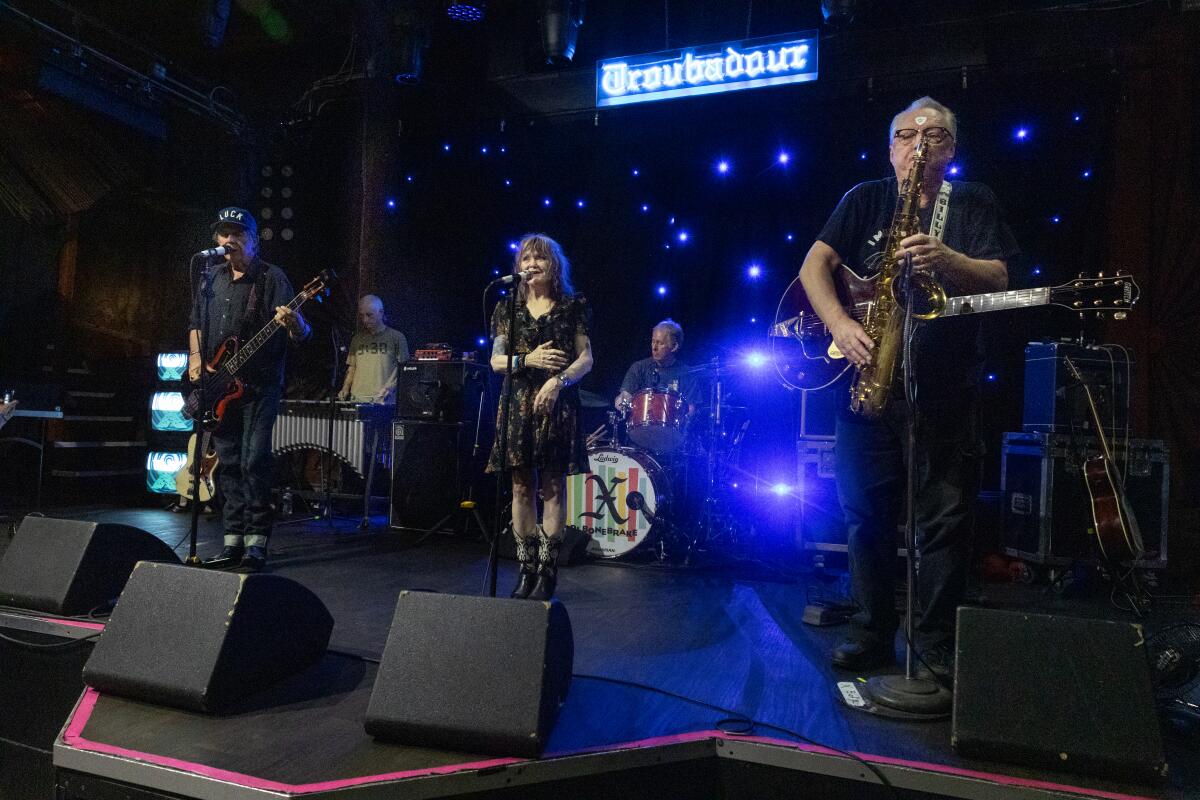
The band X performs at the Troubadour.
(Jason Armond / Los Angeles Times)
Following the show at Alex's Bar, X returned to familiar territory with a sold-out show at the Troubadour. There, before the encore, they received a proclamation from Dwight Yoakam on behalf of West Hollywood declaring it was “X Day,” something that didn't go unnoticed by the members as they accepted the honor.
For 40 of its 47-year existence, X’s lineup featured all four of its original members. Few, if any, bands can boast that level of longevity, even if album releases were few and far between for nearly three decades. They’ve always stayed true to their sonic vision and evolved rather than stagnating (yet surviving), as first wave L.A. punk peers couldn’t and didn’t.
“Looking back, I thought we were going to change the world,” Cervenka says of the early punk movement. “And all these bands were going to be huge. We were all going to tour and be on the radio, and it would be great. It would be kind of like punk rock, like ’50s and ’60s rock.”
Influencing a generation of bands in Los Angeles and beyond will have to be consolation prize enough.
“Being authentic is seeing the truth,” Doe says. “You can look back with a rosy vision, but it’s false. Things were tough, but we’re still reaping some of those rewards.”

